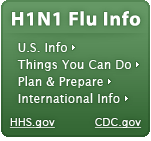
Wilms Tumor and Other Childhood Kidney Tumors Treatment (PDQ®)–Health Professional Version
SECTIONS
- General Information About Childhood Kidney Tumors
- Wilms Tumor
- Renal Cell Carcinoma (RCC)
- Rhabdoid Tumors of the Kidney
- Clear Cell Sarcoma of the Kidney
- Congenital Mesoblastic Nephroma
- Ewing Sarcoma of the Kidney
- Primary Renal Myoepithelial Carcinoma
- Cystic Partially Differentiated Nephroblastoma
- Multilocular Cystic Nephroma
- Primary Renal Synovial Sarcoma
- Anaplastic Sarcoma of the Kidney
- Nephroblastomatosis
- Treatment of Recurrent Childhood Kidney Tumors
- Special Considerations for the Treatment of Children With Cancer
- Changes to This Summary (04/02/2018)
- About This PDQ Summary
- View All Sections
Changes to This Summary (04/02/2018)
The PDQ cancer information summaries are reviewed regularly and updated as new information becomes available. This section describes the latest changes made to this summary as of the date above.
Revised Table 1 to include CLOVES syndrome as an overgrowth phenotype associated with Wilms tumor.
Added text about the characteristics of CLOVES syndrome (cited Peterman et al. as reference 31).
Added text about the genetic aberrations seen in Wilms tumor (cited Gadd et al. as reference 56).
Revised text to state that other genes critical for early renal development that are recurrently mutated in Wilms tumor include SIX1, SIX2, EP300, CREBBP, and MYCN. Also added text to state that of the mutations in Wilms tumors, 30% to 50% appear to converge on the process of transcriptional elongation in renal development and include the genes MLLT1, BCOR, MAP3K4, BRD7, and HDAC4.
Revised text to state that CTNNB1 is the most commonly mutated gene in Wilms tumor, reported to occur in 15% of patients with Wilms tumor.
Revised text to state that mutations in selected miRNAPG are observed in approximately 20% of Wilms tumor cases.
Revised Table 5 to update the 4-year event-free survival (EFS) and overall survival (OS) for stage III favorable-histology (FH) Wilms tumor (cited Fernandez et al. as reference 201).
Added text about the results of the AREN0532 study for stage III FH Wilms tumor.
Added text to state that historically, based on the NWTS-4 and NWTS-5 trials and trials performed in Europe, patients with bilateral Wilms tumor have had a lower EFS and OS than have patients with localized Wilms tumor. Also revised text to state that the NWTS-5 study reported that the 4-year EFS for all bilateral Wilms tumor patients was 56% and the OS was 81%; the 4-year EFS rates for patients with FH (65%), focal anaplastic histology (76%), and diffuse anaplastic histology (25%) were also reported.
Revised text to state that in the first prospective multi-institutional treatment trial (COG AREN0534), pretreatment biopsies were not required if results of imaging tests were consistent with Wilms tumor (cited Ehrlich et al. as reference 205). Also added text to state that in the setting of an unusual clinical situation, such as age older than 10 years or atypical imaging features, when a diagnosis other than Wilms should be considered, a tissue diagnosis is obtained.
Added text to state that end-stage renal disease is the most clinically significant morbidity in patients with bilateral Wilms tumor and can be caused by underlying germline genetic aberrations, as well as treatment-related loss of functional renal tissue. Long-term monitoring of renal function is required after treatment for bilateral disease.
Added text about the study design and results of the AREN0534 trial.
Added text about the results of a retrospective analysis of 58 patients with malignant rhabdoid tumor of the kidney from the Société Internationale d’Oncologie Pédiatrique, Gesellschaft für Pädiatrische Onkologie und Hämatologie, and European Rhabdoid Tumor Registry (cited Furtwängler et al. as reference 25).
Added El Demellawy as reference 5.
Added Li et al. as reference 5.
Added text to state that the cellular subtype of congenital mesoblastic nephroma, which commonly harbors the ETV6-NTRK3 fusion, is associated with relapsed disease. Patients should consider enrolling on the APEC1621A trial because this treatment arm uses larotrectinib, which inhibits NTRK fusions.
This summary is written and maintained by the PDQ Pediatric Treatment Editorial Board, which is editorially independent of NCI. The summary reflects an independent review of the literature and does not represent a policy statement of NCI or NIH. More information about summary policies and the role of the PDQ Editorial Boards in maintaining the PDQ summaries can be found on the About This PDQ Summary and PDQ® - NCI's Comprehensive Cancer Database pages.






















.png)









No hay comentarios:
Publicar un comentario